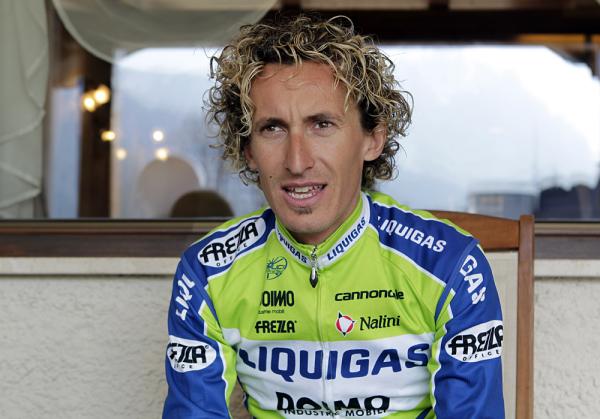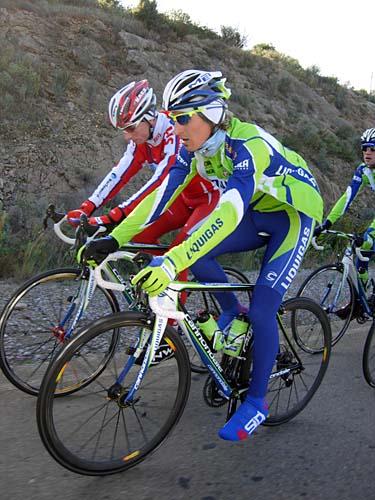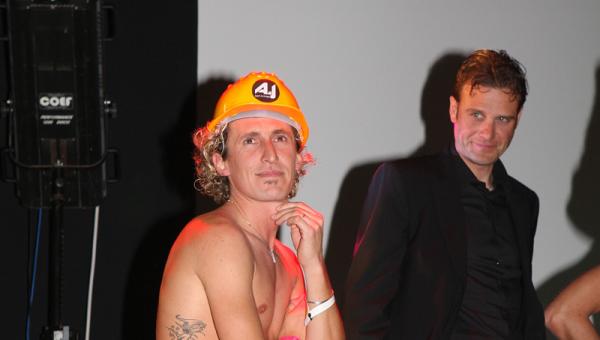Pellizotti criticises double standards between treatment of cyclists and footballers
Italian claims suspect blood values were caused by altitude training



Franco Pellizotti has criticised what he sees as a double standard between the treatment of footballers and cyclists by anti-doping authorities in Italy and insists his blood value variations were caused by altitude training.
The Liquigas-Doimo rider’s suspect blood values saw him fall foul of the UCI’s biological passport system ahead of the Giro d’Italia in May. He was cleared to race again at the end of October by the Italian National Anti-Doping Agency but the UCI may yet decide to appeal against that verdict at the Court of Arbitration for Sport.
“When I spoke with [Italian Olympic Committee anti-doping prosecutor] Ettore Torri, he said ‘for me, you could have gone to the Giro,’” Pellizotti told Il Gazzettino in a long interview. “But then Torri is the man who ran to Turin and fixed everything when the Fabio Cannavaro positive case blew up. I didn’t have any friends in high places, so I had to wait six months before the truth was established.”
In October 2009, it was revealed that Italian football captain Fabio Cannavaro had returned a positive test for cortisone. Torri met with Cannavaro in Turin and asked that the case against him be dropped after the player explained that he was using the substance to treat a bee sting. Cannavaro, then at Juventus, had requested an exemption to use the substance but did not receive the required documentation before being tested.
Pellizotti also compared his situation with that of another icon of Italy’s 2006 World Cup winning squad, Gennaro Gattuso. In March 2005, the AC Milan player and his teammate Giuseppe Pancaro refused to give blood samples after being chosen for a random test after a match against AS Roma.
“When Gattuso said that he didn’t want to do the blood test, everybody stayed quiet,” Pellizotti complained. “If a cyclist had said that, he would automatically have been considered to be doped. It’s a double standard.”
Italian claims altitude training caused variations in blood values
Get The Leadout Newsletter
The latest race content, interviews, features, reviews and expert buying guides, direct to your inbox!
Pellizotti also insisted that the fluctuations in his blood values were caused by training at altitude and not by blood doping. The Italian Olympic Committee investigators recommended that he be suspended for two years after reviewing his biological passport data, but he was then cleared by the Italian national anti-doping agency, who said there were not “enough elements to prove the cyclist guilty of blood manipulation.”
“Paradoxically, one of the reasons for the mess was that I have always had quite standard blood values,” Pellizotti claimed. “But in that period, I spent a long time at altitude, at two thousand metres, to prepare the season well and so the variations could have been physiological.”
La Gazzetta dello Sport reported during the case that Pellizotti had returned suspect values on three separate occasions; in Treviso on December 12, 2008, in Tenerife on April 15, 2009, and in Monaco on July 2, 2009, ahead of the Tour de France.
Pellizotti confirmed that he will seek damages from the UCI for causing him to miss out on “one of the most important seasons of his career.” He also says that the stresses of his case had an impact on his family life and even saw him visit a psychologist.
“They were terrible days in every way,” Pellizotti explained. “The world changes: one day you’re a God and the day after you’re someone to avoid on the street, it even happened here in my village.”
Pellizotti is still looking for a team for 2011. Although he has praised the support he received from his Liquigas team during his time away from racing, it is unclear if he will continue with the squad next season. In recent weeks he has also been rumoured to be on the radar of a number of teams, including Team Sky and Geox.

Barry Ryan was Head of Features at Cyclingnews. He has covered professional cycling since 2010, reporting from the Tour de France, Giro d’Italia and events from Argentina to Japan. His writing has appeared in The Independent, Procycling and Cycling Plus. He is the author of The Ascent: Sean Kelly, Stephen Roche and the Rise of Irish Cycling’s Golden Generation, published by Gill Books.